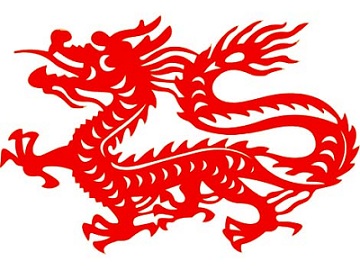
Chinese religion and philosophy
Yet Chinese "religion" is something the West could learn much from

Chinese religion and philosophy
Ethics and Philosophy
Traditionally Taoism and Confucianism provided ethical guides to the proper behavior of individuals and officials. Both of these systems originated in China during the so-called Golden Age of Chinese thought, several centuries before the beginning of the Christian era. Taoism sought to promote the inner peace of individuals and harmony with their surroundings. Confucianism, based on the teachings and writings of the philosopher Confucius, is an ethical system that sought to teach the proper way for all people to behave in society. Each relationship--husband-wife, parents-children, ruler-subjects--involved a set of obligations which, if upheld, would lead to a just and harmonious society. Following his teachings would also promote a stable, lasting government.Mahanyana Buddhism
Buddhism, which came to China from India as early as the 1st century AD, was a more conventional religion. Its followers attended occasional services, practiced rituals, and supported a temple on a regular basis. It has been estimated that more than 68 million Chinese still consider themselves Buddhists, though it is unlikely that they practice the religion regularly (See Buddhism). Prior to 1949, practices that may best be called folk religions were common throughout China. Although they incorporated elements of Buddhism and, especially, Taoism, these religions were usually local, often based on local gods, and served the local people.Lao Tzu and Tào Té Chīng
Laozi or Lao Tse, (floruit 6th century BCE) was a philosopher of ancient China, best known as the author of the Tao Te Ching (often simply referred to as Laozi). His association with the Tào Té Chīng has led him to be traditionally considered the founder of philosophical Taoism (pronounced as "Daoism"). He is also revered as a deity in most religious forms of Taoist philosophy, which often refers to Laozi as Taishang Laojun, or "One of the Three Pure Ones".According to Chinese traditions, Laozi lived in the 6th century BCE. Some historians contend that he actually lived in the 5th–4th century BCE, concurrent with the Hundred Schools of Thought and Warring States Period,[2] while some others argue that Laozi is a synthesis of multiple historical figures or that he is a mythical figure.
A central figure in Chinese culture, both nobility and common people claim Laozi in their lineage. He was honored as an ancestor of the Tang imperial family, and was granted the title Táishāng xuānyuán huángdì, meaning "Supreme Mysterious and Primordial Emperor". Throughout history, Laozi's work has been embraced by various anti-authoritarian movements.

CONFUCIANISM
Not a religion but rather a system of social philosophy and ethics, Confucianism continues to influence East Asia almost 2,500 years after the death of Confucius. Qufu, 108 miles south of Jinan in Shandong Province, is the native town of Confucius. Qufu's ornate Confucius Temple, the largest such structure in the world, covers more than 50 acres of ground in red and gold-tiled splendor. Confucius -551-479 B.C.- and his legion of descendants evolved into one of the most politically influential familial clans in China's history. The Confucius Family Mansion, a maze of nine interlocking courtyards and more than 400 rooms, attests to the clan's power and prestige. More than 200,000 Confucius family tombs can be found in the nearby Confucian Forest cemetery.TAOISM
Along with (Mahanyana) Buddhism, Taoism casts prominent themes in Chinese religious and philosophical thought. As the only truly indigenous Chinese religion, Taoism was founded 1,800 years ago. Its thought is based on the ideas recorded in the classic book -Tào Té Chīng-, said to be authored by Taoism's major proponent, Lao Tsu, in the 6th century BC. Essentially, the concept emphasizes living in harmony with the Tao -- an ideal both eternal and ineffable. Tao denotes something that is both the source and the driving force behind everything that exists. Those ancient core teachings existed even before the Tao Te Ching -- and in fact, Taoism drew its cosmological notions from the tenets of the School of Yin Yang, long predating Lao Tsu. Taoist propriety and ethics may vary depending on the particular school, but in general tends to emphasize wu-wei (action through non-action), "naturalness," simplicity, spontaneity, and the Three Treasures: compassion, moderation, and humility.BUDDHISM
The non-theistic religion of Buddhism came from India and spread to China during the 2nd century AD, and has had a considerable influence on Chinese thought, art and culture - even though only a fraction of the population have accepted Buddhism as their religion. Famed age-old monasteries throughout the country are well-maintained as tourist attractions, in addition to their role as places for religious practice. The most notable monasteries are found in the shadows of the four Buddhist Holy Mountains: Mt. Wutai in Shanxi Province, Mt Putuo in Zhejiang Province, Mt. Jiuhua in Anhui Province and Mt. Emei in Sichuan Province.
Hu Shih, former Ambassador of China to USA said: India conquered and dominated China
culturally for 20 centuries without ever having to send a single soldier across her border.
Three Monotheistic "Abrahamic" FaithsISLAM
Islam represents China's largest organized religious group, with large Moslem communities found in the northwestern Xinjiang Uyguar Autonomous Region and Ningxia Huizu Autonomous Region, and in most of the cities along the ancient Silk Road, the Grand Canal, and the southeast sea coast. Grand mosques dating as far back as the Tang Dynasty -9th century AD- remain active in Xian, Hohhot, Guangzhou, Quanzhou, Hangzhou, and Beijing.CHRISTIANITY
Christianity first came to China in the 7th century, introduced by Nestonian Christians from Persia. Today, some estimates put China's Christian population at more than 8 million, and one of the fastest growing religions within a regime that is officially atheist.JUDAISM
Jewish settlers arrived in China as early as the middle of the 10th century, establishing their first synagogue in the city of Kaifeng of Henan Province in 1163. Their descendants have been gradually assimilated into the Chinese ethnic and social fabric, with the result that Judaism is no longer practiced. Shanghai and Tianjin supported large communities of Jewish migrants prior to 1949, with virtually no surviving traces .
Thanks to Bill Tong
Additive and inclusive as opposed to proprietary and exclusive
Because the mutually-dependent, situation-oriented Chinese have a permanent primary group of human relationships throughout life, religion is regarded as utilitarian, and based upon practical necessity as a reflection of a particular situation. On matters of religion, the ancient sage Confucius advised, "We know not enough of this world - how then, can we know of the spirit world? Therefore, respect all gods and spirits, but keep them at a distance." Despite centuries of proselytization and even military force by Western missionaries, the majority of Chinese never converted to Christianity because the worship practices and emphasis upon an individual, introspective relationship with God, typical of western religions, have never found resonance with most Chinese. Instead, the relatively few Chinese who have practiced Christianity have done so without great emphasis on religious dogma due to their lack of emotional attachment to unseen deities. Throughout its long history, the Chinese have never fought a religious war, as the concept is understood in the west (i.e. the Crusades), and there has never been a history of religious persecution (i.e. the Inquisition). In fact, a colony of Jewish settlers who came to Kaifeng, China over 1,000 years ago still survives today, and their descendants today have noted that their colony was the only Jewish settlement in history that had never suffered religious persecution.The concept of an official state-sanctioned religion, or even the question "What is your religion?" is alien to most Chinese. A Chinese is likely to respond, "I follow no particular religion." Like human relationships, which are additive, rather than exclusive, religion is also regarded by the Chinese as additive, not mutually exclusive, and dependent upon situation. Thus, it was possible for a typical Chinese family to practice no particular religion at all; or at the opposite extreme, one son could be a Catholic, another son a Baptist, a daughter a Buddhist, yet another daughter a Muslim, all without conflict generated by religious intolerance. It was even possible for an individual Chinese to worship many different religions simultaneously, as was during cases of national crisis, such as famine, epidemics, or war. It is therefore not an exaggeration to classify the majority of Chinese as polytheists (acceptance of many gods) or passive atheists, with the adjective "passive" is an important distinction; unlike many American atheists, the Chinese are not committed to actively opposing the religious practices of other people nor to exposing such practices as unscientific foolishness.
Reflecting their matter-of-fact concepts of religion, the Chinese view of the after-life is not much different than this life. Gods and spirits may be good or evil; they may have the same character flaws as mortals, and the lesser, lower-ranking gods may even be fooled or bribed. Many of the gods in the Chinese concept of heaven were once revered statesmen and military heroes, whose spirits were elevated in the after-life to serve the supernatural Jade Emperor, the ruler of heaven. However, the Jade Emperor as depicted in Chinese literature does not even remotely resemble the western omnipotent God.
The ancient practice of ancestor worship (sometimes called Confucianism) by the Chinese is poorly understood in the western world. It is not truly a "religion" as defined in the west, because it does not involve a deity or deities. The spirits of one's ancestors and future unborn descendants are seen by the Chinese as part of their primary network of human relationships. The father-son relationship is permanent, and is the foundation of Chinese society; a father's primary role in life was to raise sons of his own to carry on the family line; a son's primary role was to respect his father's wishes, honor his parents, provide for them in their old age, and preserve or improve upon his father's accomplishments. Similarly, a man was obligated to pay homage to his ancestors' spirits and seek their blessings of good fortune upon his family in the present and to his future descendants. The annual spring ritual known as Ching Ming, practiced by over 1 billion Chinese world wide, is an annual homage to the spirits of one's ancestors, where offerings of food and liquor are presented at the ancestral graves, and where incense, symbolic money and official papers are burned, thereby transmitting them to the spirit world
.Prof. Bill Tong lectures at Oakton Community College - Skokie Campus. He writes: I scanned portions of "Americans & Chinese" and put them on line for a college mini-course that I was to teach. If you scroll about half way down, you will find the section on the Chinese view of religion: Excerpts from Americans & Chinese by Francis Hsu
Bill Tong - a modern polymath or Renaissance Man - a man of many abilities and credentials (he wears several hats) including lecturer, EPA scientist, musician, and continues to own and operate the family restaurant, Tea Garden
I-ching Methods and Meaning - a site designed for people willing to learn more about what is and the usage of I-ching (Book of Changes). Includes history, philosophy, structure, content and method of consultation.
The Green Dragon Society primarily teaches new students the ancient "Animal Spirits" called the Hun & Po Shen Gung. These animal spirits are primal, and have been continuously developed by the Chinese for thousands of years. This knowledge is taught through the Northern Chinese Animal System known as Chi Tao Gung-Fu (T'iao Ho Ch'uan Tao).
America's Model Minority - they prefer you not call them that

Site maintained by
Robert Shepherd
photograph